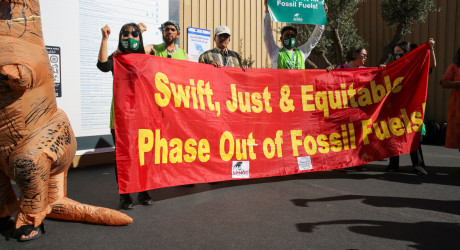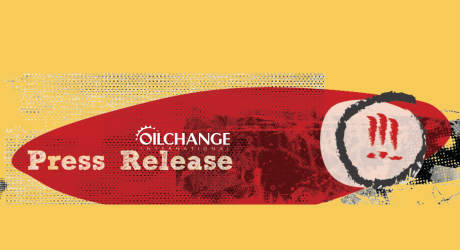PUBLIC FINANCE
Governments are still spending billions subsidizing oil, gas and coal. We need to #StopFundingFossils and start investing in the future.
OVERVIEW OF WORK
Since the Paris Agreement, G20 governments have continued to finance more than USD 77 billion dollars annually in fossil fuels through multilateral development banks (MDBs), bilateral development finance institutions (DFIs), and export credit agencies (ECAs). This is three times the support they provide to clean energy. Beyond providing this direct monetary backing, these institutions reduce perceived risk and provide a government stamp of approval on fossil fuel projects that often serves to crowd in private finance. While recently the level of fossil fuel support has started to drop, institutional policies to exclude fossil fuel finance are needed to ensure this progress continues.
While a number of public finance institutions committed to ending coal finance in the early 2010s, it wasn’t until 2017, following years of campaign pressure by Oil Change and others, that the World Bank made a meaningful commitment to stop financing for upstream oil and gas. Following an intense campaign effort, in 2019 the European Investment Bank committed to ending nearly all oil, gas and coal finance. Recently, the UK announced it would end overseas oil and gas finance, and the EU and US, among others, have signalled that they intend to follow suit. Building off these successes, OCI is now working to secure further commitments from governments and public finance institutions on ending public finance for fossil fuels.
LATEST PROGRAM POSTS
“Today's commitment to make a finance roadmap to limit warming to 1.5°C and ensure a just energy transition is a welcome step, but in order to be useful, the IEA's new research must continue with strong recommendations to immediately halt finance flowing to fossil fuels, and start recommending dramatically increased public finance on fair terms for renewable energy and energy efficiency."
"Today’s announcement from the Netherlands, United Kingdom, Canada and many of their peers is a disappointment. At a time when we need rich country leaders to concretely expand their past ambition to secure a fair deal, these ministers are just regurgitating promises and initiatives that are now more than a decade old and have been so ineffective that fossil fuel handouts and profits continue to reach record levels."
Australia has joined a major international initiative to end international public finance for fossil fuels at an event held at the UK Government Pavilion today at COP28. Australia follows Norway, who also joined the initiative on Saturday.
Today 222 civil society groups from 55 countries sent an open letter calling on world leaders to transform international public finance to tackle climate change and deliver a just energy transition.
LATEST PROGRAM RESEARCH
This report from Oil Change International and Friends of the Earth U.S. shows that since the Paris Agreement was made, G20 countries have used their export credit agencies to provide nearly 12 times more finance to fossil fuels than to clean energy.
There is an urgent need to ensure that anti-climate riders stay out of appropriations packages for Fiscal Year 2020 as Congress and the Trump Administration continue to negotiate a spending package.
G20 governments continue to provide billions of dollars for the production and consumption of fossil fuels. This report finds that they provide at least USD $63.9 billion per year in government support to the production and consumption of coal alone, with almost three-quarters of the support identified being directed to coal-fired power production.



